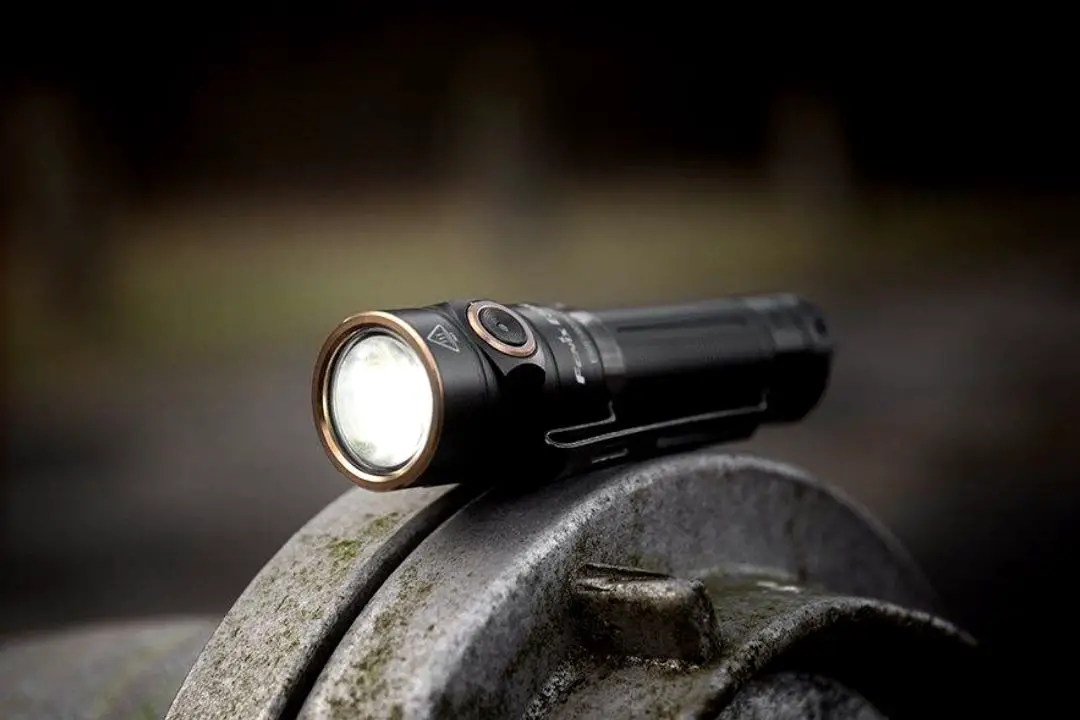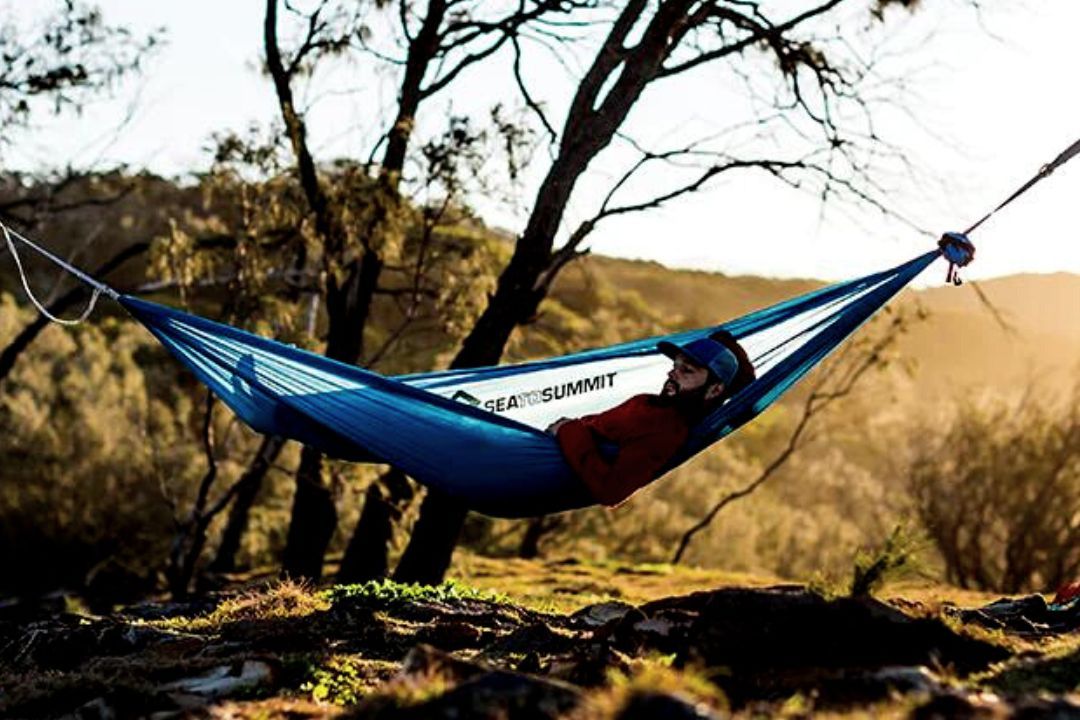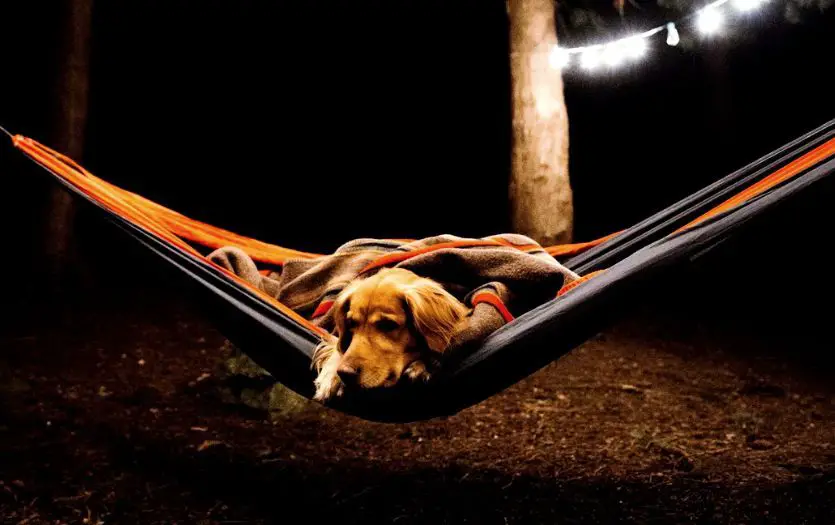What Is Dry Camping (and Why Would You Want to Do It?)
Dry camping (often used synonymously with boondocking) is a type of camping where you forego the amenities and comforts of traditional campgrounds in favor of a more rustic experience. Here's everything you need to know about dry camping, from what it is to why you might want to try it.
Dry camping is a type of camping where you forego the amenities and comforts of traditional campgrounds in favor of a more rustic experience. This can mean anything from pitching a tent in the middle of nowhere to parking your RV in an isolated spot off the beaten path.
While dry camping may not be for everyone, it's definitely an experience that all serious campers should try at least once. Here's everything you need to know about dry camping, from what it is to why you might want to try it.
What Is Dry Camping?
Dry camping is simply defined as "camping without hookups." This means that when you're dry camping, you're on your own in terms of electricity, water, and sewer hookups. While this may sound like a recipe for disaster, people who have tried dry camping often find that it's actually a freeing and rewarding experience.
Without the constant drone of generators and the hustle and bustle of busy campgrounds, dry campers are able to truly unplug and immerse themselves in nature. And because dry campers are more self-sufficient, they often find that they make new friends more easily since they have to rely on each other for help with things like collecting firewood or hauling water.
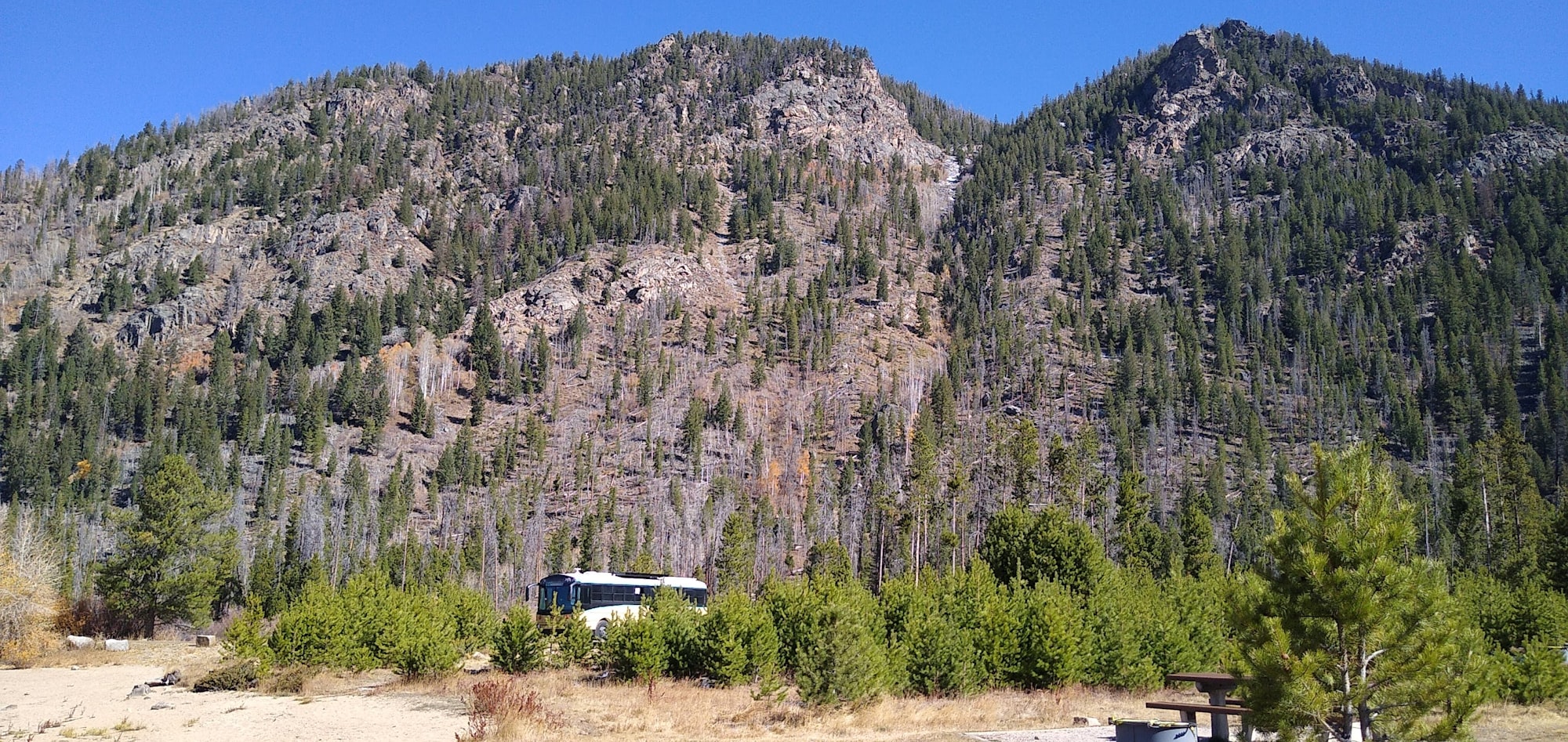
Is Dry Camping The Same As Boondocking?
Boondocking is derived from a Filipino term, 'Bundok' meaning mountain. It originally referred to camping in the mountains without any outside hookups, for water, electricity, etc. But nowadays it has evolved to a more sophisticated form.
Apparently, boondocking is a type of dry camping and is quite similar to it by definition. So these two terms are often used interchangeably. But there's a fine difference between these two.
Boondocking, by definition, will not allow any hookups from the 'outside' but they can be done in an official campground or RV park with full amenities (including water and power and parking lots).
Whereas, dry camping, in its strictest sense, is done in a more remote location or public lands where you have to haul your own water and generate your own power.
Why Would You Want to Try Dry Camping?
Here are just a few of the benefits of dry camping.
1. You'll Become More Self-Sufficient
One of the great things about dry camping is that it forces you to become more self-contained. When you don't have access to hook ups, you have to be careful about how much water you use and how you dispose of your waste. This can be a great opportunity to learn new skills, like how to properly conserve water or build an outdoor shower. And once you've mastered those skills, you'll be able to take them with you on future camping trips— even if they do have hookups!
2. You'll Get Closer to Nature
Another benefit of dry camping is that it gives you the chance to really get close to nature. When you're not surrounded by the amenities of civilization, you're able to appreciate the natural world in a whole new way. Maybe you'll spend more time exploring the hiking trails near your campsite or watching the stars at night. Either way, dry camping is a great opportunity to appreciate nature in its purest form.
3. You'll Save Money
One final benefit of dry camping is that it's often cheaper than regular camping. That's because many campgrounds charge extra for hookups like water and electricity. So if you're looking for a way to save money on your next camping trip, dry camping might be the way to go. Plus, since you won't have any hookups to worry about, you can camp just about anywhere!
4. Reduced Environmental Impact
When you dry camp, you're doing your part to reduce your environmental impact. That's because dry camping requires far fewer resources than regular camping. For example, you won't have to use as much water since you won't have access to a hookup. And, if you generate your own power, and rely on solar power, you'll be using less energy from the grid. So if you're looking for a way to be more eco-friendly, dry camping is a great option.
5. Fewer People, More Peace and Quiet
If you're looking for a quiet and relaxing camping trip, dry camping is the way to go. That's because dry camping is often done in more remote areas, away from the hustle and bustle of busy campgrounds. This can be a great opportunity to unwind, unplug, and really enjoy your time in nature. And, since there are typically fewer people dry camping, you'll have a better chance of finding peace and quiet.
Overall, dry camping is a great way to get closer to nature, save money, and reduce your environmental impact. So if you're looking for an adventure, give it a try! You might just find that you love it.
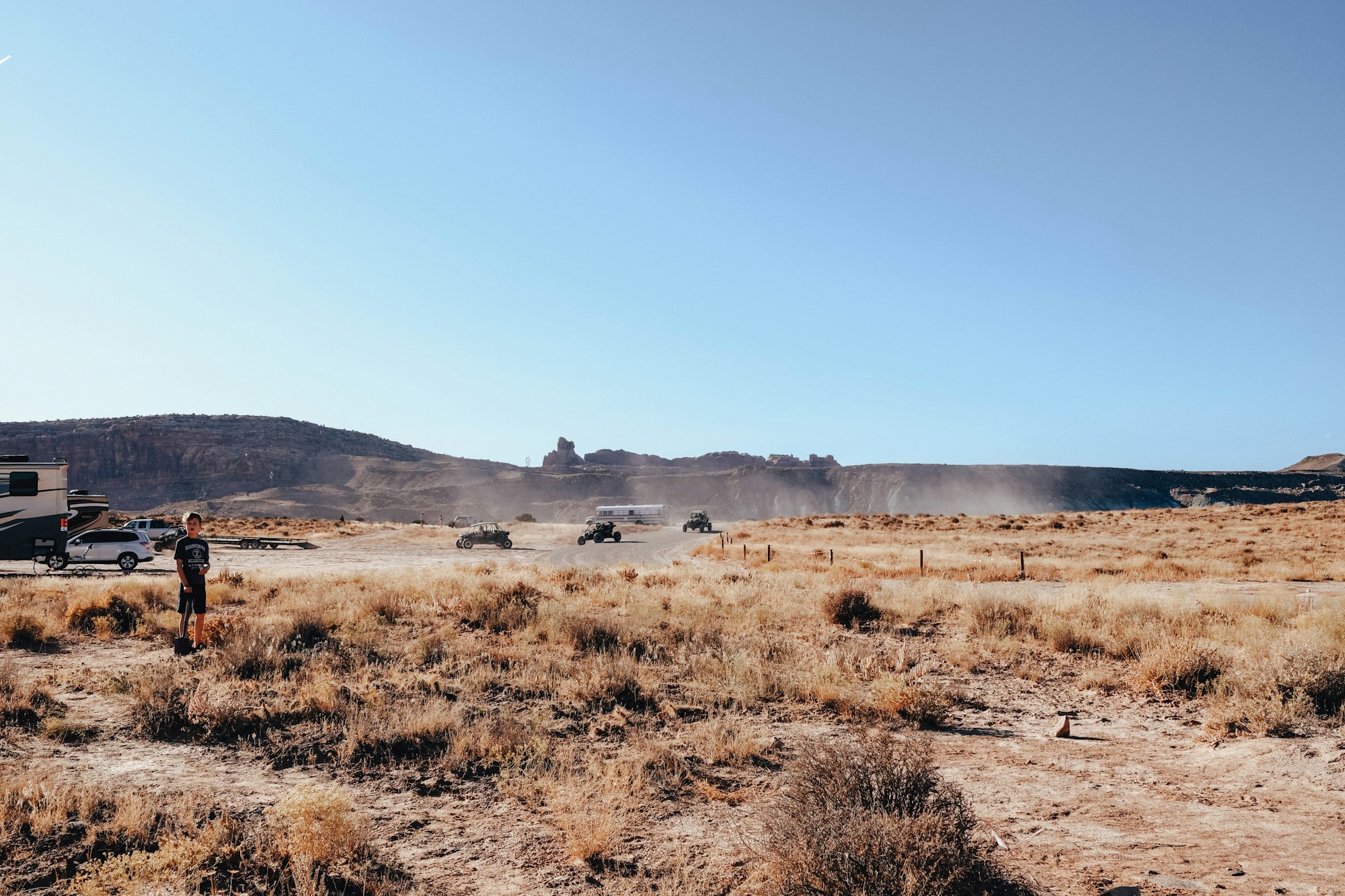
How to Go About Dry Camping
There are a few things to keep in mind when dry camping, or camping without hookups for water and electricity. Proper preparation is key to having a successful and comfortable trip.
1. Use a generator sparingly and only during the day. noise can be bothersome to other campers, so it's best to avoid running it at night. If you must use it at night, run it for only a few hours and make sure it's properly ventilated so the exhaust doesn't build up in your campsite.
2. Make sure you have enough fresh water. A good rule of thumb is to bring one gallon per person daily. If you're planning on doing any cooking or dishwashing, you'll need even more. It's also a good idea to bring along some water purification tablets in case you run out and need to purify water from a natural source. Also, have a straw water filter handy.
3. Pack plenty of food. When you're dry camping, you won't have easy access to stores or restaurants, so it's important to make sure you have enough food to last the entire trip. Dehydrated non-perishable items, such as canned goods, rice, and pasta, are always a good idea if you don't plan on bringing a proper camp kitchen setup. But it is a good idea to have a small stove or grill.
4. Be mindful of your waste. Because you won't have hookups for water or sewer, you'll need to be extra careful about how much waste you produce. Bring along extra garbage bags and be sure to dispose of all waste properly.
5. Have a backup plan. In case of bad weather or an emergency, it's always a good idea to have a backup plan. know your surroundings and make sure you have a map of the area in case you need to evacuate.
Keep emergency radios or at least a capable watch that can give weather alerts, if you are going to a remote place without a mobile network.
With proper preparation, dry camping can be a fun and rewarding experience. Keep these tips in mind and you'll be sure to have a great time!
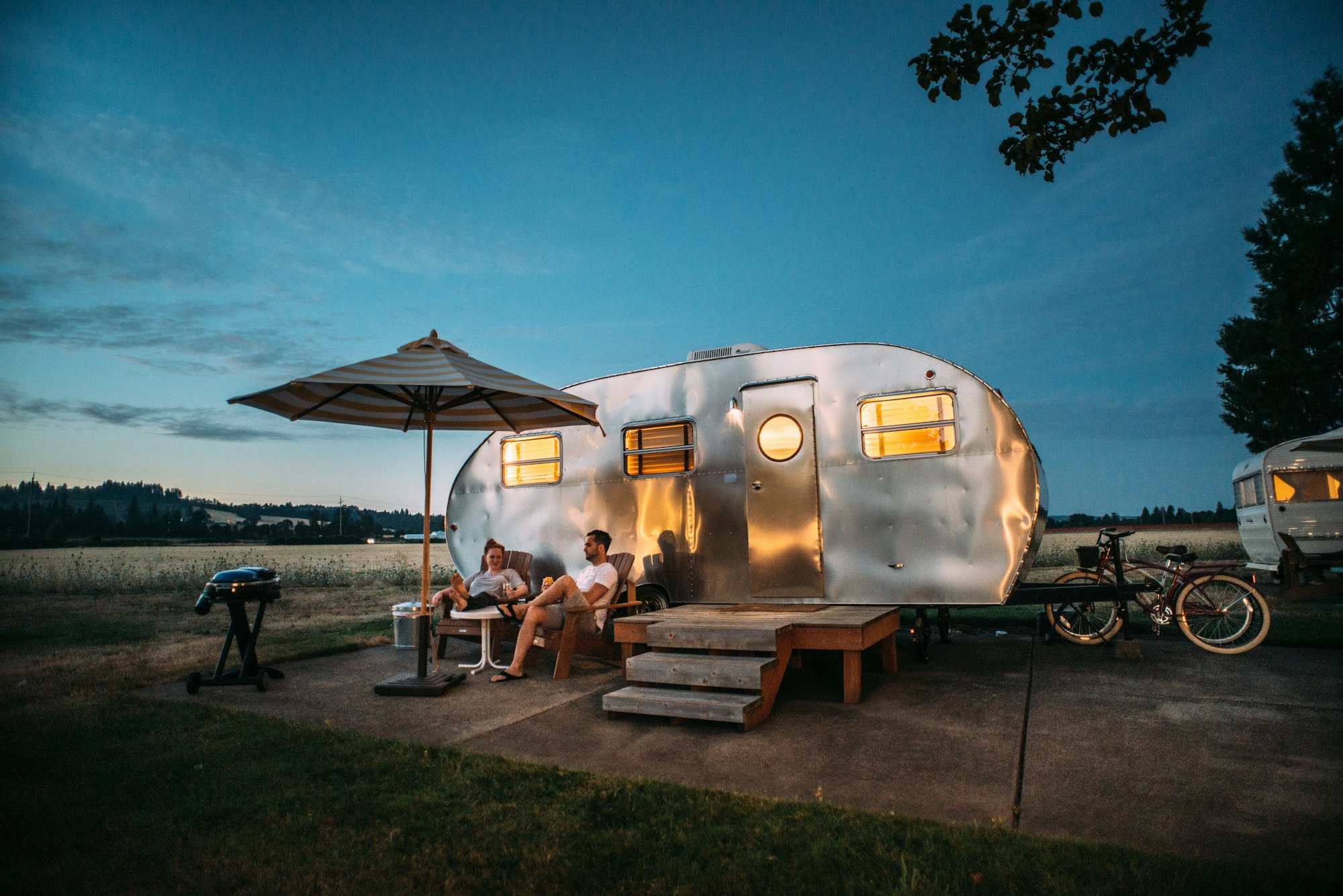
Dry Camping Tips for Beginners
Dry camping is a great way to save money and enjoy the outdoors. However, it can be a bit daunting for beginners. Here are a few tips to help you get started:
1. Find a good spot:
When choosing a spot for dry camping, make sure to consider the terrain and weather conditions. You'll want to find a level spot that's not too exposed to the elements. Also, if you are RVing or bringing a trailer, choose a location with a proper parking lot for your vehicles.
2. Bring enough water:
One of the most important things to remember when dry camping is to bring enough water. If you are RVing you can bring a water tank, but if that is not possible bring large water containers.
Make sure you have at least 1 gallon per person per day for drinking and cooking. You may also want to bring along some extra for washing up.
3. Bring a generator:
A generator can be a lifesaver when dry camping. It can be used to power lights, charge phones, and run small appliances. It is best if you can bring a solar generator (like a Jackery Power Station) and solar lights.
4. Toilet & Sewage
If you are RVing and have a toilet and sewage system, make sure to empty it and bring a clean black tank before arriving at your dry camping spot. You will not have hookups for water or electricity, so you need to be mindful of your usage.
If possible, use biodegradable bags and dispose of them properly whenever you find a dump station. If you are tent camping, you can use a porta-potty or bring along a toilet tent.
5. Food & Cooking
When dry camping, it is best to bring non-perishable food items that do not require refrigeration. canned goods, rice, pasta, and cereal are all great options. If you plan on cooking, make sure you bring a camp stove and enough propane. charcoal is another option, but make sure you bring a grill and lighter fluid.
6. Entertainment
Make sure to bring along some form of entertainment for your trip. Books, games, and cards are all great options. If you have cell service, you can also download movies or shows to watch offline. You can also bring a portable projector for watching movies.
7. Tools & Supplies
You'll want to make sure you have all the necessary tools and supplies for your trip. This includes a first-aid kit, a flashlight, a knife or multitool, matches, and a fire starter. It is also a good idea to bring along a camping tarp and some rope in case you need to make repairs or build a shelter.
8. Be prepared for the weather
Before heading out on your trip, make sure to check the weather forecast, and bring clothes and other gear accordingly. If it is going to be cold, make sure to bring warm clothing and blankets. If it is going to be hot, make sure to bring sunscreen, hats, and sunglasses.
9. Be prepared for emergencies:
When dry camping, it's important to be prepared for any eventuality. Make sure you have a first-aid kit and a plan for what to do if someone gets injured or sick. It's also a good idea to let someone know where you'll be and when you're planning on returning.
10. Enjoy the experience:
The whole point of dry camping is to enjoy the simplicity of being in nature. So make sure to take the time to appreciate your surroundings and relax. Bring a good book, some games, or whatever else you need to unwind.
Final Words on Dry Camping
Adventure campers don't always set out for extreme hammocking! Dry camping can also be a great opportunity for Adventure Campers to really get back to basics and Simple Living and connect with nature more intimately. When you don't have the amenities of civilization, you're forced to appreciate the natural world around you.
Of course, dry camping has some downsides as well - it can be uncomfortable if the weather is bad, and you have to be much more self-sufficient. But overall, we think the upsides outweigh the downsides!

Also, check out some of our other blog posts:

